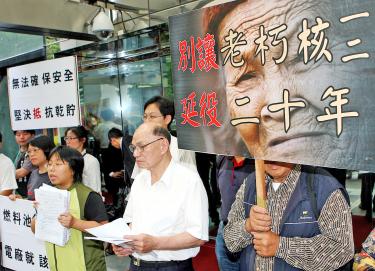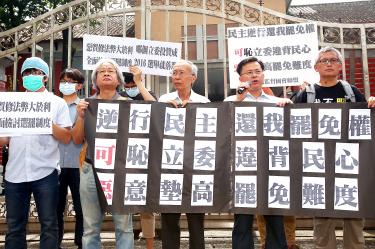A group of antinuclear activists yesterday filed a lawsuit against the Atomic Energy Council for allowing Taiwan Power Co (Taipower, 台電) to conduct heat testing at its dry cask nuclear waste storage facility.
Gathering in front of the Taipei High Administrative Court, the activists — joined by several residents living in the nation’s northern coast, where the nation’s first and second operating nuclear power plants are located — shouted slogans such as “Power plants should retire when spent fuel pool is full” and “First confirm the removal schedule or temporary storage will become the final disposal site.”













